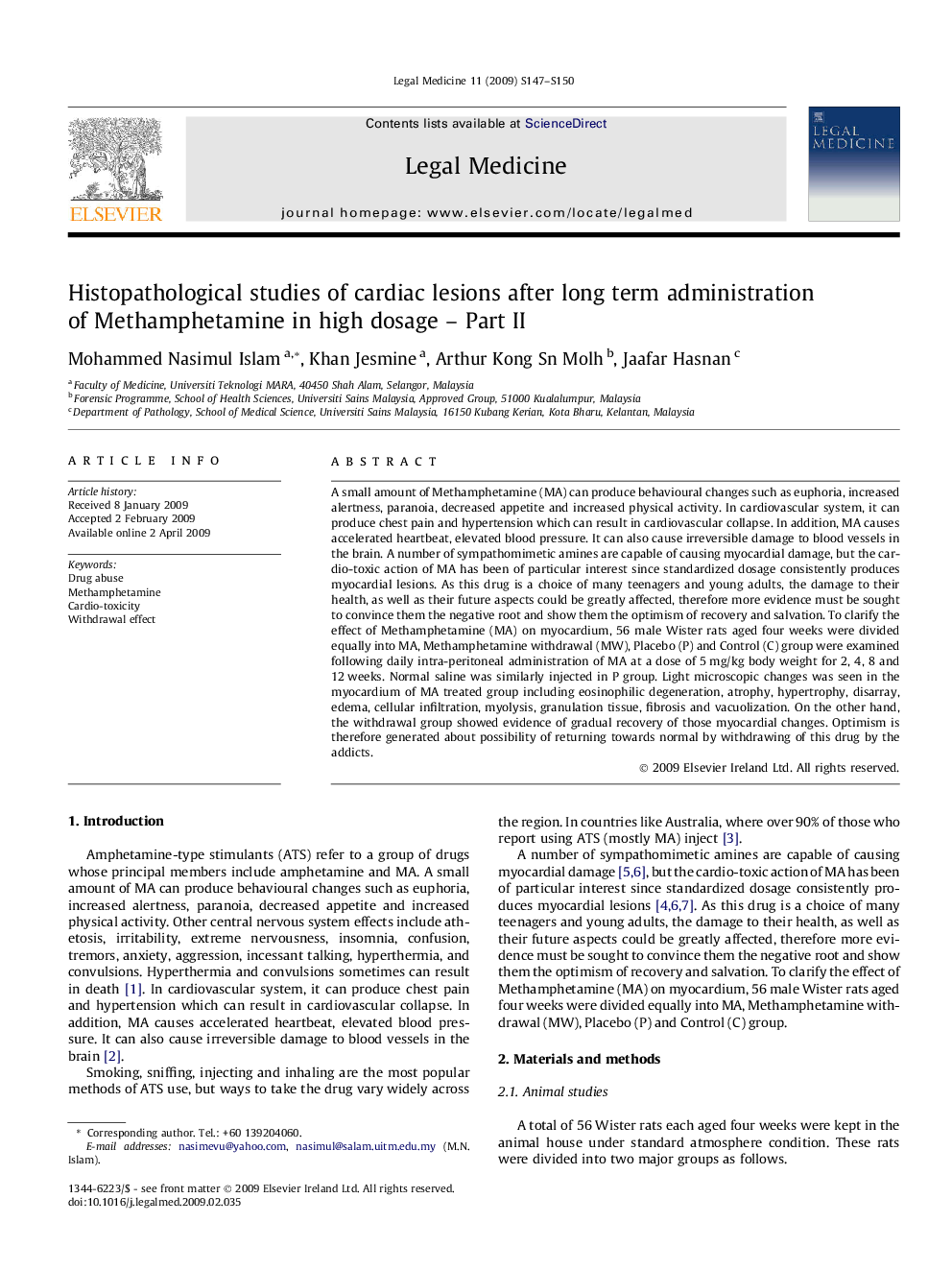| Article ID | Journal | Published Year | Pages | File Type |
|---|---|---|---|---|
| 104078 | Legal Medicine | 2009 | 4 Pages |
A small amount of Methamphetamine (MA) can produce behavioural changes such as euphoria, increased alertness, paranoia, decreased appetite and increased physical activity. In cardiovascular system, it can produce chest pain and hypertension which can result in cardiovascular collapse. In addition, MA causes accelerated heartbeat, elevated blood pressure. It can also cause irreversible damage to blood vessels in the brain. A number of sympathomimetic amines are capable of causing myocardial damage, but the cardio-toxic action of MA has been of particular interest since standardized dosage consistently produces myocardial lesions. As this drug is a choice of many teenagers and young adults, the damage to their health, as well as their future aspects could be greatly affected, therefore more evidence must be sought to convince them the negative root and show them the optimism of recovery and salvation. To clarify the effect of Methamphetamine (MA) on myocardium, 56 male Wister rats aged four weeks were divided equally into MA, Methamphetamine withdrawal (MW), Placebo (P) and Control (C) group were examined following daily intra-peritoneal administration of MA at a dose of 5 mg/kg body weight for 2, 4, 8 and 12 weeks. Normal saline was similarly injected in P group. Light microscopic changes was seen in the myocardium of MA treated group including eosinophilic degeneration, atrophy, hypertrophy, disarray, edema, cellular infiltration, myolysis, granulation tissue, fibrosis and vacuolization. On the other hand, the withdrawal group showed evidence of gradual recovery of those myocardial changes. Optimism is therefore generated about possibility of returning towards normal by withdrawing of this drug by the addicts.
